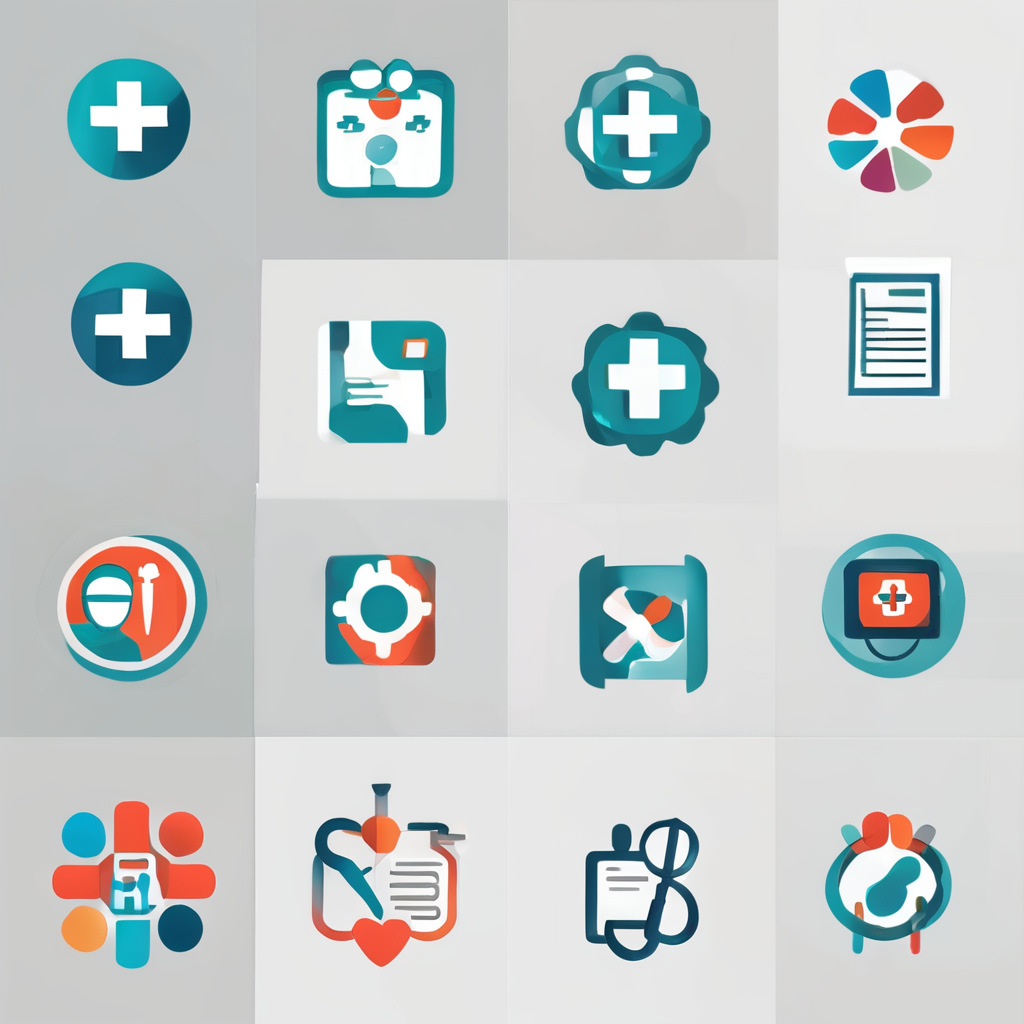Understanding ADHD and Concentration Challenges
ADHD, or Attention-Deficit/Hyperactivity Disorder, is a neurodevelopmental condition predominantly affecting children’s concentration, extending its influence into adulthood in numerous cases. Central symptoms, including inattention, hyperactivity, and impulsivity, significantly impact one’s ability to focus. People with ADHD often experience difficulties in maintaining attention, which can affect daily functioning and academic or professional performance.
These concentration issues stem from brain function irregularities, specifically in neurotransmitter activity. Neurotransmitters like dopamine and norepinephrine play crucial roles in attention and cognitive processes. In individuals with ADHD, there can be compromised neurotransmitter activity, leading to inefficiencies in the brain’s ability to maintain focus and regulate behaviour.
Additional reading : Transform your health: the impact of plant-based diets on reducing type 2 diabetes risk
The unpredictability and intensity of ADHD symptoms can vary from person to person, with some experiencing persistent challenges while others might notice sporadic difficulties. Holistic management approaches can incorporate lifestyle tweaks and professional interventions designed to target these brain function variances.
Understanding these aspects of ADHD and how they affect concentration can empower individuals with the disorder, and their support networks, to explore effective strategies for improvement. Enhanced awareness paves the way for targeted responses that can alleviate these symptoms and bolster overall productivity and quality of life.
Also to see : Harnessing biofeedback therapy: transform your approach to managing stress-related disorders
The Role of Diet in Managing ADHD Symptoms
Diet plays an essential role in ADHD management, influencing both mental health and concentration abilities. Nutritional therapy is a promising approach that underscores the importance of food choices in alleviating ADHD symptoms. Proper nutrition can contribute to a healthy brain function and help regulate neurotransmitter levels, impacting concentration and overall behaviour.
A well-balanced diet, rich in essential nutrients, supports neurotransmitter function, which is crucial for individuals with ADHD. Nutritional deficiencies, particularly in vitamins and minerals, can exacerbate concentration challenges in ADHD sufferers. Proteins and omega-3 fatty acids are well-documented for boosting brain health and focus, leading to potential improvements in attention-related issues.
Dietary approaches for managing ADHD symptoms often highlight nutrient-dense foods that support mental health. These include fruits, vegetables, whole grains, and lean proteins. Specific nutrients like zinc, magnesium, and omega-3s have shown positive effects, helping stabilize mood and enhance cognitive processes.
Adopting a diet that targets these areas can be a practical strategy in addressing ADHD symptoms. By prioritizing a varied and balanced nutritional intake, individuals may observe significant improvements in focus and behaviour, lessening the daily impact of concentration issues.
Specific Supplements for Enhanced Concentration
In the journey toward better concentration, supplements play a crucial role in ADHD management. Among the most studied are magnesium, zinc, and iron, each offering varying benefits.
Magnesium supports neurotransmitter activities crucial for attention. Its calming properties can aid in reducing hyperactivity and enhancing concentration. Studies indicate that magnesium deficiencies might exacerbate ADHD symptoms, suggesting that ensuring adequate intake could be beneficial.
Zinc, another essential mineral, influences dopamine regulation in the brain. Dopamine is integral to focus and executive function. Research has found that zinc supplementation can assist in improving behavioural issues and attention span in children with ADHD.
Iron, important for dopamine metabolism, impacts cognitive development and brain function. Those with ADHD often have lower iron levels, making it a noteworthy supplement choice. However, before incorporating any of these into a regimen, it is wise to consult a healthcare professional to address individual needs and avoid excessive intake.
Incorporating these supplements can serve as a complementary strategy alongside diet to manage ADHD symptoms effectively. Always ensure balanced consumption and expert guidance to maximise benefits and maintain health.
Evidence-Based Dietary Recommendations
When tackling ADHD through dietary means, nutrient-rich foods are indispensable allies. Certain dietary suggestions stand out for their potential benefits in managing ADHD symptoms.
Omega-3 Fatty Acids
Omega-3s, found in fatty fish like salmon and sardines, play a crucial role in brain health. Studies suggest these fatty acids can enhance attention and reduce hyperactivity. Incorporating omega-3 supplements into an ADHD diet may offer noticeable improvements in concentration. Recommended intake varies; however, 1-2 grams daily is often advocated for ADHD symptom management.
Protein-Rich Foods
Proteins are vital for supporting brain function and concentration. Incorporate lean meats, legumes, and nuts into meals to facilitate sustained attention. Consuming protein-rich foods at breakfast can stabilise blood sugar levels and enhance mental clarity throughout the day.
Whole Grains and Fibres
Whole grains are essential for maintaining stable energy. Foods like brown rice, quinoa, and oats provide complex carbohydrates, which release energy slowly. Dietary fibres in whole grains beneficially influence gut health, believed to have a direct impact on mental clarity. For best results, aim to include whole grains in every meal, ensuring long-lasting energy supports cognitive demands.
Practical Tips for Implementing Dietary Changes
Tackling ADHD with nutrition requires thoughtful adjustments and meal planning strategies that fit seamlessly into one’s lifestyle. Embracing these practical tips can make the transition smoother and more effective.
Begin by creating a grocery list tailored to ADHD needs, emphasising healthy eating. Include an array of nutrient-dense foods like fresh produce, lean proteins, and whole grains. Planning meals around these elements not only simplifies shopping but also ensures balanced intake.
Consistency is key—establish regular meal routines to support brain function. Eating at the same times daily helps stabilise energy and concentration, a crucial component for managing ADHD life adjustments. Implement simple preparation techniques, such as batch cooking or using meal prep services, to maintain these routines effortlessly.
Introduce small, gradual changes to minimise overwhelm. Start with one dietary modification, such as integrating more omega-3 sources, before proceeding to the next. This gradual method encourages sustainable change and fosters a sense of achievement, helping you stay motivated.
Overall, by focusing on nutritious options, consistent patterns, and strategic preparation, dietary adjustments can become a significant, enjoyable part of effective ADHD management.
Overcoming Misconceptions About Diet and ADHD
Amidst the complex world of ADHD, myths surrounding dietary impacts can often mislead individuals. It’s crucial to dispel these misconceptions, allowing for clearer understanding and effective management of symptoms.
A prevalent myth concerns sugar’s role in ADHD-related hyperactivity. Research has shown there is no definitive link between sugar consumption and increased hyperactivity in children with ADHD. While it’s true excessive sugar isn’t advisable for overall health, its direct influence on ADHD symptoms isn’t supported by scientific evidence.
Another common misconception suggests that all individuals with ADHD benefit from the same dietary adjustments. However, nutritional needs can vary widely, similar to the unique ways ADHD presents in each person. This individuality requires personalised dietary strategies rather than a one-size-fits-all solution.
Recent studies further clarify these misconceptions, providing insights into the nuanced relationship between diet and ADHD. Understanding the specific dietary needs that align with scientific evidence can better aid in managing the condition effectively.
Keeping informed through reliable sources and consulting healthcare professionals ensures dietary choices are both informed and beneficial. By addressing these myths, individuals can focus on genuine solutions for improved ADHD management through diet.
Personal Success Stories and Testimonials
Hearing directly from individuals with ADHD helps illuminate the benefits of dietary changes in concentration management. These personal experiences highlight the significant impact of dietary adjustments.
One common factor among success stories is the inclusion of nutrient-rich foods, which seem crucial. Individuals often report a noticeable improvement in focus after embracing a diet rich in omega-3 fatty acids and proteins. This shift often leads to enhanced attention spans and diminished hyperactivity.
Consider Alice, who struggled with concentration issues due to ADHD. After adopting a tailored nutrition plan, she experienced marked improvements in her productivity. Her approach combined omega-3-rich foods, like salmon, with protein-packed meals, aiding in stable energy levels throughout the day.
Michael’s journey with ADHD management echoes Alice’s story. His success is attributed to dietary modifications, focusing on consistent omega-3 and zinc intake. This change not only bolstered his concentration but also fostered improved behavioural responses.
While challenges remain, such as maintaining consistency and motivation, these testimonials underline the long-term benefits a mindful diet can offer. These stories provide encouragement for others and emphasize dietary change as a powerful tool within ADHD management.
Resources for Further Support and Information
Navigating ADHD can be daunting, but numerous resources are available to guide individuals and families on their journey to effective management. It’s essential to tap into reliable ADHD resources that provide science-backed information and support groups for added community and understanding.
To start, numerous books delve into the mechanisms of ADHD and offer targeted dietary advice. Titles by well-respected authors in the field can provide valuable insights. Additionally, websites dedicated to ADHD management frequently offer updated content on dietary strategies and adjustments. Such educational materials are vital for deepening understanding and empowering informed decisions.
Support groups present an invaluable opportunity for sharing experiences and strategies with others facing similar challenges. These communities, whether online or in person, foster emotional support and practical tips exchange, benefiting both individuals with ADHD and their caregivers. Connecting with others helps in navigating daily hurdles and staying motivated through shared testimonies.
Finally, consulting with healthcare professionals is crucial. They can offer personalised advice and ensure that any significant dietary changes are safe and appropriate, considering one’s unique needs. Informed guidance from professionals ensures a holistic approach to ADHD, blending dietary strategies with overall well-being goals efficiently.











